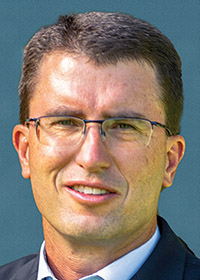You can’t be what you’re not around
by December 6, 2022 12:13 pm 578 views

Generally, every season has an off-season. For example, it’s now the baseball off-season. Off-seasons serve at least two primary purposes: rest and recovery from the season that just concluded and preparation for the next season. How athletes and sports teams use their off-season has a great deal of influence on how they perform in-season.
I recently talked to a high school baseball coach about his plan to get a group of talented but young players to play up with upperclassmen in the off-season. There’s a noticeable difference between high school freshmen and seniors in their physical development and experience. The pitching is different. The hitters are different. As are the baserunners and the arms trying to throw them out. This planned immersion is an intentional effort to help these players become better. In this approach, the crucible of first-hand experience is the instructor.
I recently joined a group of business leaders on their own intentional development path. I commended their effort, pointing out that one cannot remain static in a highly dynamic environment and expect to keep up. In a way, they were using the seasonality in their business to develop themselves in targeted ways. There are a few important parallels.
First, if you’re going to learn something new or acquire new skills, you need to gain access to a source (a book, a conference, a coach, etc.) of that thing you desire. If you can’t be what you’re not around, you better get around what you want to be.
Over the past decade or so, leaders are taking more personal ownership of their development, and that trend is only growing. Companies recognize this as the norm and offer differentiated, self-initiated development opportunities to their team members. This a la carte, one-size-fits-one approach is being leveraged as an essential component to grow and retain talent.

The next key is finding a credible source from which to grow. I had a friend recently rail against podcasts. While there are several good ones out there, her point was that anyone with a microphone and an internet connection creates a podcast of pontification and that seemingly establishes credibility in the mind of the public when they may be a complete imposter. It’s about like anyone with a smartphone becoming a journalist. Credibility comes in many forms. Accredited certification is one.
Experience is another. Asking for references from people you trust is essential in finding these sources. I get asked all the time, “Who do you know that …?” It’s why I make great effort to know who does what great work because I know my own capabilities and limitations so that I can give good referrals.
Finally, leaders must consider what development experience they can create for their people. Like the baseball coach, the senior leader can make the needed development opportunity accessible. They may control the budget or the relationship. Identifying with the team member the desired and relevant development opportunity and sponsoring the work to happen is among a senior leader’s primary responsibilities.
We are on the doorstep of a new year that will undoubtedly bring new opportunities and challenges, dare we say “unprecedented.” What is included in your 2023 talent strategy to prepare yourself and those for which you are responsible for all that lies ahead?
Chuck Hyde is the founder of C3 Advisors, a firm focused on executive development and talent optimization. He can be reached at www.c3adv.com. The opinions expressed are those of the author.
